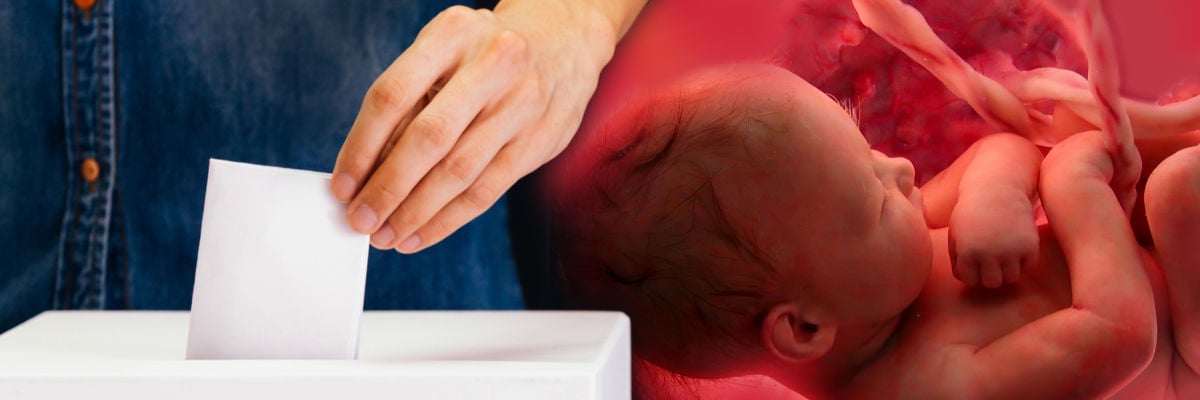
Faith, Abortion, and Voting, Part 1
In this series leading up to Election Day, we will explain why abortion is the most serious and urgent social issue of our time and what this means for Catholic voters. Are we simply free to vote for whatever candidate we prefer, for any reason that’s in our conscience? Or does our right to vote come with objective moral responsibilities that we must consider before casting our ballot?
It’s the 1860 presidential election and you have four candidates to choose from. Three of them want to allow the new states in the West to practice legal slavery. The fourth, Abraham Lincoln, says that the federal government should prevent these states from ever making it legal to enslave a human being.
Whom do you vote for? I bet it’s the candidate who opposes legal slavery.
Does that make you a naïve, “single-issue” voter? After all, voters in 1860 were concerned about many important issues, including poverty, tariffs, women’s rights, and secession.
Yet out of all those issues, only one of them, slavery, was preeminent—far and away the more important social issue of that time.
It wasn’t abortion—because although abortions did happen then, they were illegal and rare. Those who broke the law and performed abortions were condemned by groups like the American Medical Association. This made abortion less important an issue than the four million Americans—13 percent of the population—who were legally enslaved.
Today, however, the situation is very different.
Slavery is illegal, though some criminals still practice it through human trafficking. But abortion is legal, and in this country alone it kills 850,000 pre-born children every year. Ten percent of these abortions take place after the first trimester and use a procedure called dilation and evacuation, in which fetuses may be decapitated and dismembered.
Most people today think they surely would have opposed slavery in the nineteenth century, yet they ignore or defend the legal killing of children in the womb, citing the “right to choose.” Yet abortion is the “slavery issue” of our time, the preeminent issue, and, just like slavery, it can be fully defeated only once the evil laws that uphold it are overturned.
Martin Luther King Jr. once said that laws “may not change the heart, but they can restrain the heartless.” Even though the Supreme Court generally upheld legal abortion in Roe v Wade, the right elected officials today can pass and enact laws or take other actions that:
- Keep tax dollars from funding abortion
- Make it less likely for abortion facilities to stay open
- Prevent unborn children’s remains from being used for medical research
- Appoint judges likely to challenge or even overturn pro-abortion laws
And the wrong elected officials can do the opposite of these things and more, strengthening the regime of legal abortion and leading to the deaths of thousands of innocents.
Tomorrow, in the next part of our series, we will look at the duties that Catholic politicians have when it comes to this preeminent social issue.



